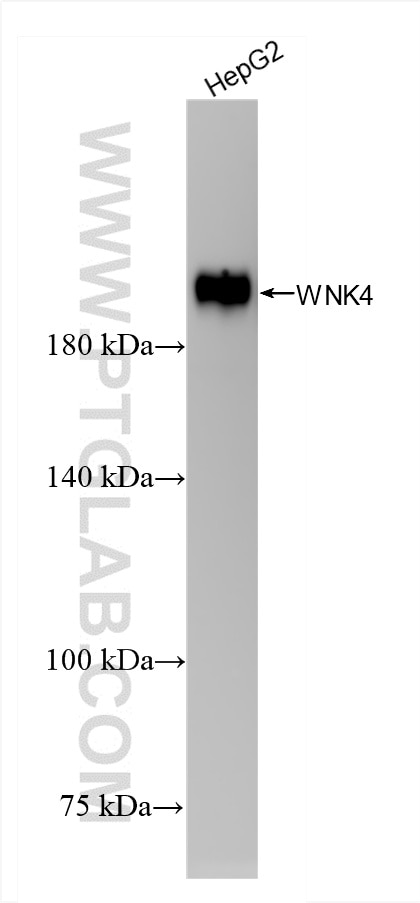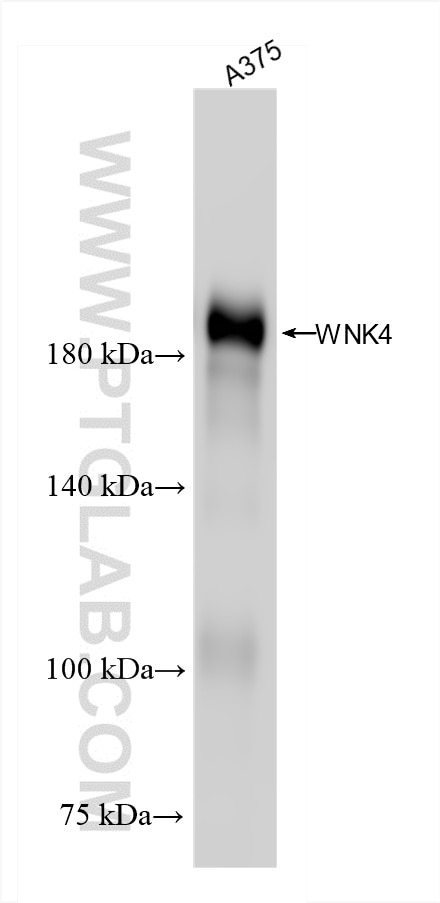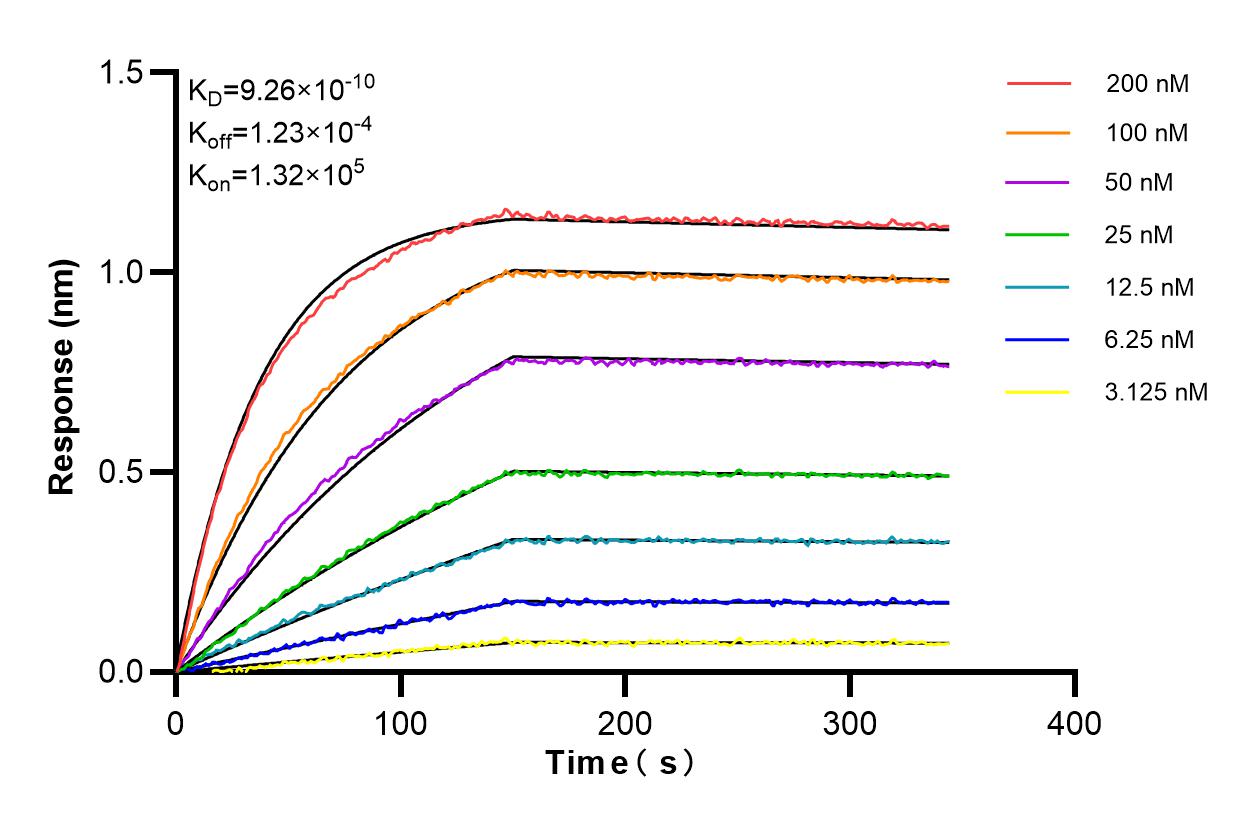Tested Applications
| Positive WB detected in | HepG2 cells, A375 cells |
Recommended dilution
| Application | Dilution |
|---|---|
| Western Blot (WB) | WB : 1:5000-1:50000 |
| It is recommended that this reagent should be titrated in each testing system to obtain optimal results. | |
| Sample-dependent, Check data in validation data gallery. | |
Product Information
85886-4-RR targets WNK4 in WB, ELISA applications and shows reactivity with human samples.
| Tested Reactivity | human |
| Host / Isotype | Rabbit / IgG |
| Class | Recombinant |
| Type | Antibody |
| Immunogen |
CatNo: Ag17773 Product name: Recombinant human WNK4 protein Source: e coli.-derived, PGEX-4T Tag: GST Domain: 845-1243 aa of BC136664 Sequence: PISSQVSSNPSPHPTSSPLPFSSSTPEFPVPLSQCPWSSLPTTSPPTFSPTCSQVTLSSPFFPPCPSTSSFPSTTAAPLLSLASAFSLAVMTVAQSLLSPSPGLLSQSPPAPPSPLPSLPLPPPVAPGGQESPSPHTAEVESEASPPPARPLPGEARLAPISEEGKPQLVGRFQVTSSKEPAEPLPLQPTSPTLSGSPKPSTPQLTSESSDTEDSAGGGPETREALAESDRAAEGLGAGVEEEGDDGKEPQVGGSPQPLSHPSPVWMNYSYSSLCLSSEESESSGEDEEFWAELQSLRQKHLSEVETLQTLQKKEIEDLYSRLGKQPPPGIVAPAAMLSSRQRRLSKGSFPTSRRNSLQRSEPPGPGIMRRNSLSGSSTGSQEQRASKGVTFAGDVGRM Predict reactive species |
| Full Name | WNK lysine deficient protein kinase 4 |
| Calculated Molecular Weight | 1243 aa, 135 kDa |
| Observed Molecular Weight | 220 kDa |
| GenBank Accession Number | BC136664 |
| Gene Symbol | WNK4 |
| Gene ID (NCBI) | 65266 |
| Conjugate | Unconjugated |
| Form | Liquid |
| Purification Method | Protein A purification |
| UNIPROT ID | Q96J92 |
| Storage Buffer | PBS with 0.02% sodium azide and 50% glycerol, pH 7.3. |
| Storage Conditions | Store at -20°C. Stable for one year after shipment. Aliquoting is unnecessary for -20oC storage. 20ul sizes contain 0.1% BSA. |
Background Information
WNK4 (With No Lysine Kinase 4) is a member of the WNK family of serine/threonine protein kinases. It plays a crucial role in regulating electrolyte balance and blood pressure by modulating the activity of ion transporters in the kidney. WNK4 is primarily involved in the regulation of sodium and potassium homeostasis. It achieves this by phosphorylating and activating the kinases SPAK and OSR1, which in turn regulate the activity of the sodium-chloride cotransporter (NCC) in the distal convoluted tubule of the kidney. Additionally, by promoting sodium reabsorption and potassium secretion, WNK4 contributes to the regulation of blood pressure. Increased activity of WNK4 can lead to hypertension. (PMID: 24655003; 33491560)
Protocols
| Product Specific Protocols | |
|---|---|
| WB protocol for WNK4 antibody 85886-4-RR | Download protocol |
| Standard Protocols | |
|---|---|
| Click here to view our Standard Protocols |








